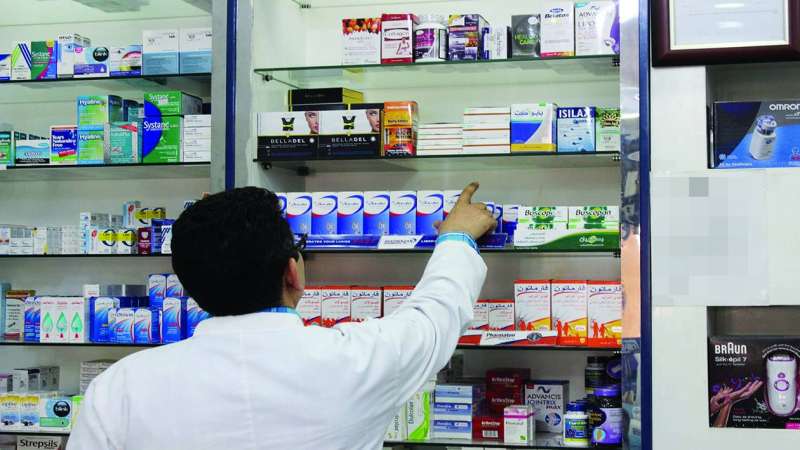30/04/2023
30/04/2023

KUWAIT CITY, April 30: Despite the recent announcement about prospects of finding solutions to the problem of shortage of medicines, the crisis has reemerged on the websites of private sector pharmacies that are witnessing a shortage of some types of medicines, according to some doctors. This foreshadows a renewal of the problem, the smoke of which is beginning to rise gradually through the cyber world, reports Al-Rai daily.
In an opinion poll conducted by a member of the Union Of Pharmaceutical Importers Musaed Al-Hajri regarding the shortage of some medicines in private pharmacies, the consultant surgeon Dr. Muhammad Jamal said, "My patients suffer a lot due to the shortage of medicines in private pharmacies, the most important of which are Dexilant and Ursofalk."
The senior Ear, Nose and Throat specialist Dr. Fahad Adnan Al-Asousi highlighted the lack of Pulmicort medicine.
A number of followers stressed the lack of some medicines such as Maxitrol ointment, Trachisan medicines, benzoyl peroxide 10 percent, eye drops such as PRED FORTE and Optifresh, Magnesium citrate tablets 300ml, pink and blue baby panadol and many others.
Regarding the problem, pharmacist Yousef Shams Al-Din indicated an acute shortage of antiviral eye ointment "acyclovir", which is very important for treating viral infections in the eyes.
He stressed that it is not available in the private sector and there is an acute shortage of it in the government sector.
According to health sources, the most prominent causes of the problem lie in the pricing of medicines and their inappropriateness for local and international companies, and the decrease in the profit margin at a time when the operating expenses of companies or pharmacies are witnessing an increase in expenses either in rental prices, workers’ salaries or transportation expenses, in addition to the delay in the issuance of registration certificates for medicines.
The delay of the parent companies (manufacturers) in supply is also due to the size of the market and the ratio of distribution is lower, compared to other countries, in addition to the transfer of agencies between local companies, and the legal procedures that follow.
The sources highlighted the most prominent solution to the problem, which is the need to reconsider the pricing of medicines.
They referred to the cancellation of more than 150 items from the State of Kuwait annually, at the request of the manufacturers due to their inappropriate prices in Kuwait.
The sources revealed that some of the medicines given to expatriates in clinics and hospitals are more expensive than those given to Kuwaitis, which was what prompted Minister Dr. Ahmad Al-Awadhi to take action in this regard.
They expressed their surprise about the fact that the decision to restrict dispensing some types of medicines to sick citizens was aimed to prevent waste and to rationalize spending, especially since some specialists confirmed that some of these medicines given to expatriates are more expensive than those that are given to citizens.
The sources said, “The Minister of Health Dr. Ahmad Al-Awadhi, upon learning of the matter, issued directives that the prices of these medicines should be reviewed to achieve the desired goal behind the decision.”
It is worth highlighting that the Ministry of Health issued a decision recently to restrict the disbursement of 372 medicines to citizens, and followed it by adding another group of medicines that are only disbursed to citizens.


